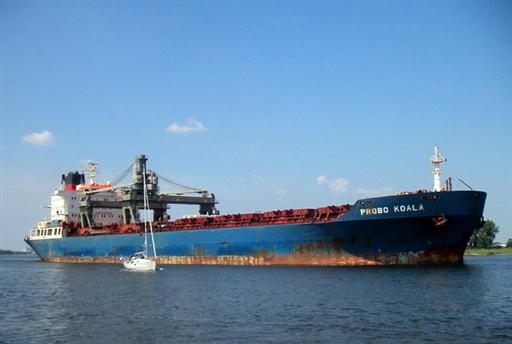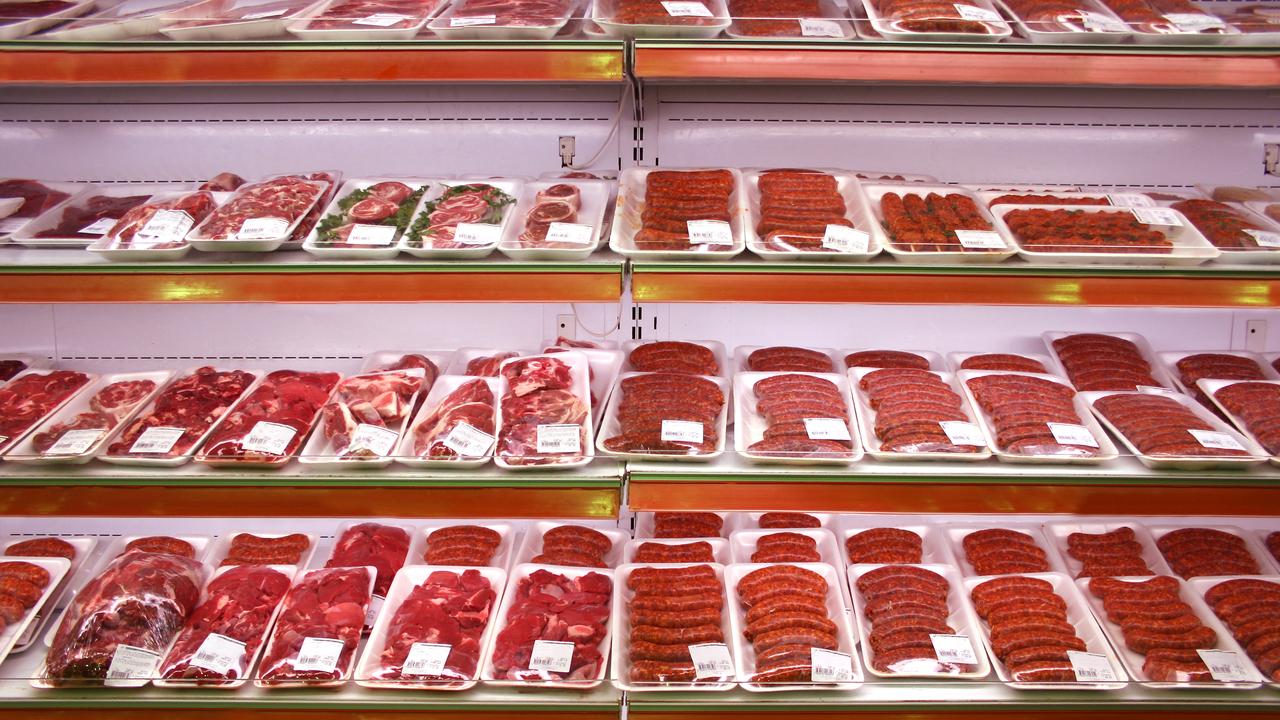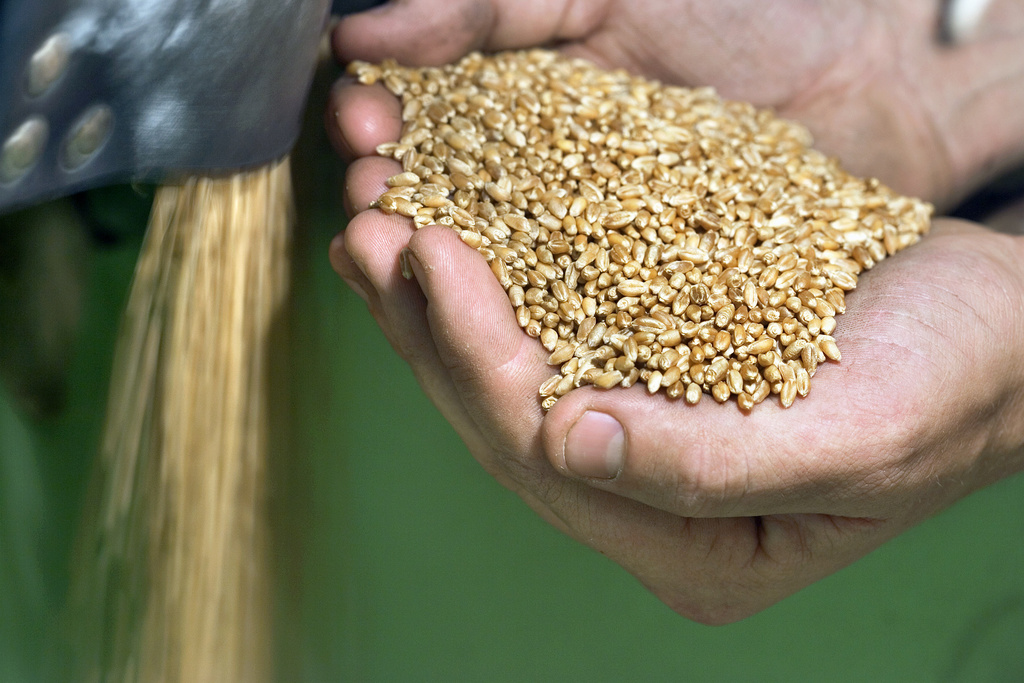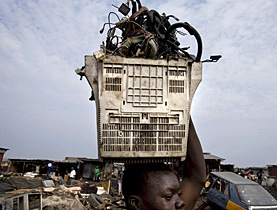Trafigura in court over toxic waste

Trafigura, a top commodities trader with Swiss offices, is facing criminal charges in the Netherlands over illegally exporting hazardous waste to Ivory Coast in 2006.
At a trial in Amsterdam, prosecutors have accused the metals and oil trading firm, which has branches in Geneva and Lucerne, of putting “self interest above people’s health and the environment”. The firm rejects the charges.
Chartered by Dutch-based Trafigura Beheer BV, the ship Probo Koala had wanted to offload 500 tons of “slops” – petrochemical waste, described as residues from gasoline mixed with caustic washings – in Amsterdam in July 2006 but decided not to after being told it would have to pay clean-up costs.
Around a month later, the material was dumped in the Ivorian capital Abidjan and thousands of city residents complained of illnesses.
The Ivorian government said 16 people died but a British judge said last September there was no evidence the waste had caused anything more than “flu-like symptoms”.
Trafigura has always denied that the waste was dangerous, or that it knew that the chemicals would be dumped.
The Dutch criminal case, which started on Tuesday, focuses on the docking of the oil tanker in Amsterdam, and will not address details of what happened after the ship left port. It is expected to last around two months.
The ship had begun unloading slops from one of its tanks in the Dutch port, but then had them pumped back aboard after the dispute over processing costs.
An investigation into the composition of the waste was still under way when the ship was granted permission to leave, which prosecutors say violated Dutch law.
Self interest or responsible entrepreneur?
Prosecutor Luuk Boogert said Trafigura, Amsterdam Port Services BV and Amsterdam city authorities had all put “self-interest above people’s health and environment” when they allowed the ship to depart with a hazardous cargo.
He said Trafigura had first tried to conceal how dangerous the waste was, then “dumped it over the fence” in Africa to save €400,000 (SFr566,000). “Cheap, but with consequences,” he said.
Trafigura is charged with intentionally exporting hazardous waste, concealing its harmfulness, and forgery.
Trafigura lawyer Aldo Verbruggen said the charges were based on an “unfounded moral judgment”.
He told the court: “Trafigura is a company which holds high doing business in a socially responsible manner and it is convinced it has followed the rules that are at issue”.
Among those standing trial in Amsterdam is an employee of Trafigura and the Ukrainian captain of the Probo Koala. Neither were present when the trial opened.
The city of Amsterdam and Amsterdam Port Services (APS) deny charges of “leaving dangerous waste in the hands of someone not qualified to process it”. The firm and authorities all face fines and individuals face prison time and fines.
Dumping and payouts
As for later events, Trafigura has never admitted any wrongdoing surrounding incidents in August and September 2006, when the ship later offloaded the 500 tons of slops to a local company in Ivory Coast.
That company then poured the caustic mix into open-air dumps in Abidjan, the West African country’s largest city. The head of the local contractor involved was sentenced to 20 years in prison in a trial in Ivory Coast in 2008.
The Guardian’s investigative reporter David Leigh, who has written extensively on this affair, said the Amsterdam trial was “significant” as it represented the first time the Trafigura had faced criminal charges over the scandal.
“In the Ivory Coast they bought their way out of criminal charges and in Britain it was an out-of-court settlement,” he told swissinfo.ch.
In 2007 Trafigura paid €157 million to Ivory Coast to help clean up the waste. It handed over another €40 million in an settlement in London in September 2009 to 30,000 people who said they were affected by the waste.
It was agreed in the London case that the waste could only have caused minor “flu-like symptoms”.
But the UN’s top expert on toxic waste, Okechukwu Ibeanu, said in 2009 “it is clear that there is a direct and indirect connection” between the waste and 100,000 illnesses and 16 deaths that Ivory Coast attributed to the pollution.
Environmental group Greenpeace is reportedly still investigating whether there are links between the deaths in Ivory Coast and the toxic waste.
Simon Bradley, swissinfo.ch with agencies
April-June 2006: gasoline blend stocks transferred to the Probo Koala ship, chartered by Trafigura, in the Mediterranean Sea. The blend stocks were treated with caustic soda to reduce the level of mercaptans, which prevent the blending of oil products into a tradable commodity.
June 30: the ship docked at the port of Amsterdam to refuel on the way to Estonia and discharge its fuel tanks.
July 2-5: strong odours prompted the Amsterdam Port Services to take a sample, which revealed a higher chemical oxygen demand than was permitted and able to process. A more costly treatment, available at Rotterdam, was offered at a revised price (€900 (SFr1,273) per cubic metre rather than €20 per m3). Trafigura rejected the quote and the waste was reloaded onto the Probo Koala.
August 19: the Probo Koala ship, chartered by Trafigura, offloaded 500 tons of “slops” in Abidjan in the Ivory Coast to newly created local subcontractor, Tommy Ltd. The latter, which had made an offer of €30-35 per m3, dumped the waste in 18 open-air city waste tips around Abidjan.
August 20: thousands of local residents visited health centres complaining of nausea, headaches, vomiting, abdominal pains, skin, throat, lung and gastric problems. Fifteen people died, 69 were hospitalised and there were more than 108,000 medical consultations resulting from the incident, according to official estimates.
September 6: political crisis and unrest in Ivory Coast resulting from the incident led to the resignation of the government.
February 2007: the Ivory Coast president signed a settlement agreement with Trafigura for $198million to cover damages suffered by the state and compensation for victims.
October 2008: the owner of Tommy Ltd and a representative of the Ivorian shipping agent WAIBS received 20 and 5 year jail sentences respectively for their role in the incident.
September 2009: Trafigura agreed to a settlement in London with Ivory Coast to end a class-action lawsuit over dumping toxic waste.

In compliance with the JTI standards
More: SWI swissinfo.ch certified by the Journalism Trust Initiative












You can find an overview of ongoing debates with our journalists here . Please join us!
If you want to start a conversation about a topic raised in this article or want to report factual errors, email us at english@swissinfo.ch.